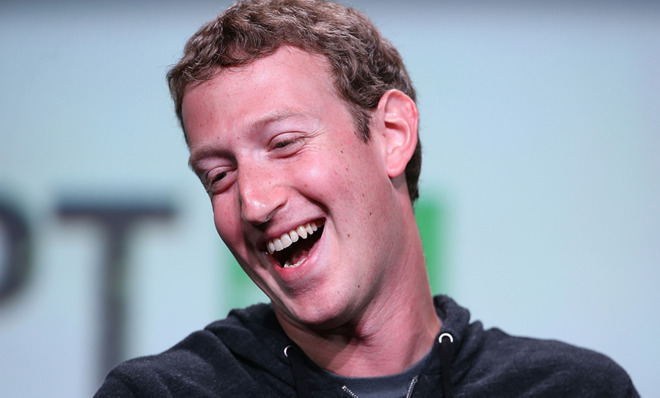Why America needs more billionaires
Income inequality is all the rage in Washington policy circles. But we should be trying to figure out how to create more 1 percenters.


A free daily email with the biggest news stories of the day – and the best features from TheWeek.com
You are now subscribed
Your newsletter sign-up was successful
America has lots of problems, but too many billionaires isn't one of them. And most Americans agree. A Politico poll this week found that only 1 percent picked inequality as the economic issue that most concerns them.
Many folks in Washington, however, see things differently. Democrats, including President Obama and Hillary Clinton, cite inequality as a big threat to the American Dream.
Now you can add Federal Reserve Chair Janet Yellen to the list of policy-makers fretting about the gap between the rich and everybody else. "The extent of and continuing increase in inequality in the United States greatly concern me," she said last week. "I think it is appropriate to ask whether this trend is compatible with...the high value Americans have traditionally placed on equality of opportunity."
The Week
Escape your echo chamber. Get the facts behind the news, plus analysis from multiple perspectives.

Sign up for The Week's Free Newsletters
From our morning news briefing to a weekly Good News Newsletter, get the best of The Week delivered directly to your inbox.
From our morning news briefing to a weekly Good News Newsletter, get the best of The Week delivered directly to your inbox.
Let me answer Yellen's question: So far, yes, rising inequality seems to fit just fine with an American society that puts great importance on improving your lot in life through smarts and hard work. A highly regarded study earlier this year found, after examining millions of tax records, that children entering the job market today have the same chance of climbing the income ladder as children born in the 1970s — that despite rising inequality. Indeed, the economists found little correlation between income mobility and high-end income inequality between the 1 percent and 99 percent.
The rich getting richer isn't what keeps people from climbing the success ladder. In fact, having lots of super-rich people can create more opportunity for everybody. Well, at least the right kind of super-rich. Not so much old money scions or CEOs with lucrative stock options. But entrepreneurs are a different breed of billionaire. We want risk-takers creating new businesses that offer innovative and amazing new goods and services. And we want those start-ups to grow and grow and hire lots of people.
If all that happens, those entrepreneurs are likely to become staggeringly wealthy. Forget the 1 percent; we're talking the 0.1 percent or 0.01 percent. Think Bill Gates, Steve Jobs, the Google guys. But that wealth accumulation is beneficial because the value these entrepreneurs create for the rest of us through their software, computers, and search engine far exceeds the value they capture for themselves.
The good news is that the U.S. generates a lot of what researchers Magnus Henrekson and Tino Sanandaji call "high impact" entrepreneurship. In a 2013 study, they used Forbes magazine's annual list of billionaires from 1996 to 2010 to compile a collection of nearly 1,000 self-made billionaires. Only Hong Kong and Israel have a greater number of billionaires per million residents than the United States.
A free daily email with the biggest news stories of the day – and the best features from TheWeek.com
But the U.S. could do better. In fact, it must do better because these start-up success stories, while creating many good-paying jobs, don't create as many positions as big companies did decades ago. For instance: Apple has the largest market capitalization of any publicly traded company but only 80,000 employees. That's a tenth of the workers that General Motors had in the 1960s.
America needs more Mark Zuckerbergs, not fewer. How to create them? There is no magic formula, but Henrekson and Sanandaji find the rate of billionaire entrepreneurs correlates positively with nations that have lower taxes, more venture capital investment, and less regulation. High capital gains taxes seem particularly harmful.
Worrying about those things would be a good start for Washington. While inequality hasn't made it harder to get on the success ladder, it does make it more costly to stay stuck at the bottom. A more entrepreneurial U.S. economy generating more high-paying jobs will ensure more people are making that climb to the top rungs.
James Pethokoukis is the DeWitt Wallace Fellow at the American Enterprise Institute where he runs the AEIdeas blog. He has also written for The New York Times, National Review, Commentary, The Weekly Standard, and other places.
-
 The Gallivant: style and charm steps from Camber Sands
The Gallivant: style and charm steps from Camber SandsThe Week Recommends Nestled behind the dunes, this luxury hotel is a great place to hunker down and get cosy
-
 The President’s Cake: ‘sweet tragedy’ about a little girl on a baking mission in Iraq
The President’s Cake: ‘sweet tragedy’ about a little girl on a baking mission in IraqThe Week Recommends Charming debut from Hasan Hadi is filled with ‘vivid characters’
-
 Kia EV4: a ‘terrifically comfy’ electric car
Kia EV4: a ‘terrifically comfy’ electric carThe Week Recommends The family-friendly vehicle has ‘plush seats’ and generous space
